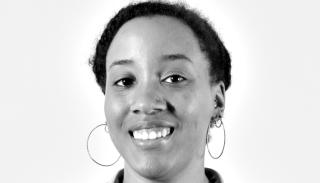City Controller: Latinos need to come together "as a unified front"
In an exclusive interview with AL DÍA News, City Controller Alan Butkovitz made some very candid statements about Latino political power in Philadelphia.
The City Controller for the past three terms, Butkovitz is no stranger to controversy. From calling out Mayor Nutter during his administration to openly stating his primary opponent, Rebecca Rhynhart, is a member of the "establishment" and therefore would be ineffective in the position, Butkovitz is unafraid to make enemies.
In an exclusive interview with AL DÍA News, City Controller Alan Butkovitz made some very candid statements about Latino political power in Philadelphia.
The City Controller for the past three terms, Butkovitz is no stranger to controversy. From calling out Mayor Nutter during his administration to openly stating his primary opponent, Rebecca Rhynhart, is a member of the "establishment" and therefore would be ineffective in the position, Butkovitz is unafraid to make enemies.
This time, Butkovitz turned his attention to the Latino community and addressed the growing populations declining representation in government.
Butkovitz, who is up for re-election this year, called the current political climate in Philadelphia a "laughing stock" and cited a lack of unity and support as being the primary cause of the lack of advancement both economically and in the local elected positions of government.
"Based on raw numbers, the Hispanic community should be roaring on it’s way to a Hispanic mayor or at least a Hispanic [District Attorney]. But people in politics know that if you support a Hispanic candidate, there’s going to be nine other factions that are going to be angry at you about [it], ‘Why did you support that faction?’ That’s a dynamic that needs to change," said Butkovitz. "Hispanics are tremendous, growing unrealized potential. You don’t see those other kinds of political problems in other parts of the country. In California, they’re strong. In Texas, they’re strong. Philadelphia has a general problem."
While Latinos comprise 12.3% of the city of Philadelphia’s population at an estimate of 207,721 by the United States Census Bureau, there is currently only one top elected city representative of a high caliber and that is Councilwoman Maria Quiñones-Sánchez.
Having served on City Council since 2008, Sanchez represents one of the districts with the highest Latino population in the city: District 7. And in her position as the first Latina elected to a district seat in 2007 with nearly 80% of the vote, her shaky re-election is the reality that Butkovitz points to in order to confirm his theory.
Though Councilwoman Sanchez has managed to continue to serve that community, Butkovitz says that it is not Latinos who have helped her reach or maintain her current status.
"You get leaders like Sanchez who establish a lot of respect and support in the broad community and she fights that battle in her backyard and almost loses her re-election," said Butkovitz.
And with few advocates who are truly able to act as the Latino voice in communities they serve, Butkovitz highlights the losses that the Hispanic population in the city takes as a result, "The highest poverty areas are right around Fairhill - 2nd and Lehigh - and that correlates with a lack of Hispanic political power in the city," he said of the economic impact.
"They’re just very pessimistic. They just haven’t bought into the idea that if they all work together, they can advance on the whole pie. So they’re looking at it as if there's only this little piece that’s available to us and if you don’t get it, I don’t get it," stated Butkovitz.
But with communities in North Philly, Center City, and South Philadelphia, the vastly different demographics of the city of Philadelphia suggests that the unified front Butkovitz speaks of may have different immediate concerns, specifically with Puerto Ricans making almost 70% of Philadelphia's Latino population and South Philadelphia's Mexican population coming in as the second largest population. And with primary elections featuring a candidate outside of both those communities, Cuban-American District Attorney candidate Richard Negrin, Butkovitz says the future may be bleak.
"The Hispanic community as you see in the upcoming election is so divided and so internally competitive that they’re not able to press a common agenda the way the black community does or the gay community or many of the other political [groups]," says Butkovitz. "And now you have Rich Negrin as a District Attorney but it’s such a divided field, and there hasn’t been a unified push for him on the basis that he would be an expression of the Hispanic community and we would like the support of other minorities. It’s unrealized potential."
Expanding his vision to larger elections in the state, Butkovitz spoke openly about the tragedy of Emilio Vazquez possible write-in election. Vazquez has served as the Democratic leader of the 43rd Ward and also an auditor for the Philadelphia Parking Authority. The former seat of former State Rep. Leslie Acosta, Vazquez has been seen as the top Latino candidate up to the ballot, "That will be a national humiliation. If in the age of Trump with all of the anti-hispanic rhetoric, that the republicans manage to grab a totally Hispanic seat just because the democrat wasn’t on the ballot and there was infighting. It would make Philadelphia a laughing stock - it’s already. How could the democrats not get their candidate on the ballot," said Butkovitz.
With the May primary elections coming up and a well-known opponent fighting for Butkovitz seat, it's still unclear if a unified front will lead to the City Controller's re-election.











LEAVE A COMMENT: